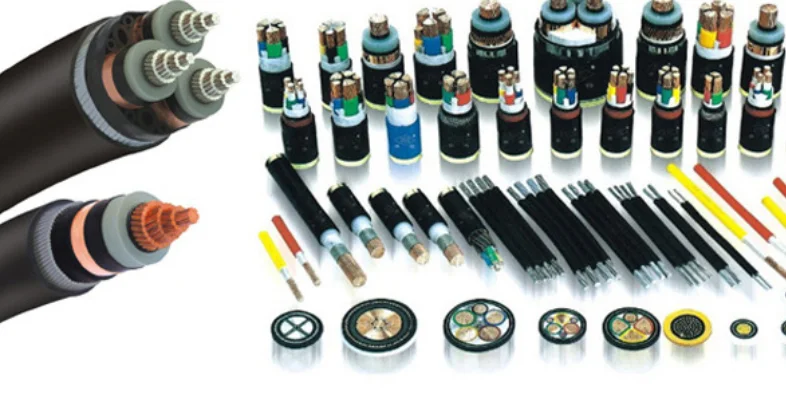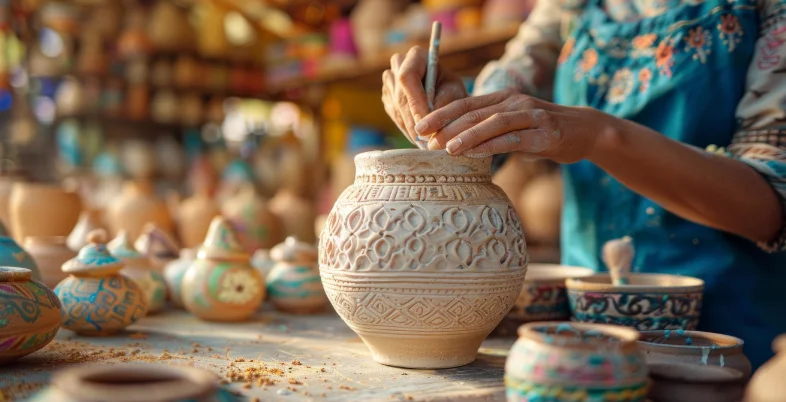India offers a wealth of business prospects, and trading is an easy way to take advantage of them. Because the population is growing, more people are part of the middle class but demand is higher, the trading sector is doing well in all parts of the country, including cities, towns and rural areas. People are interested in buying goods for everyday use, electronics, garments and organic products and there is always a market for those who supply and trade them.
Only a suitable product, a basic supply chain, and knowledge of your target market are needed. Opportunities in online trade range from selling rare items to distributing large amounts of everyday goods.
10 ways to start a trading business in India that are easy to get started, flexible, and popular these days. The authors include useful information, reasons why these trading business ideas in India matter, and suggestions on how to start using them. If you want to become an entrepreneur or simply make more money, these trading concepts show a smart way to grow your finances and achieve success in the busy Indian market. Let us think about the potential possibilities for you.
Define Trade Business and Describe Its Way of Operation?
The main objective of a trading business is to make profit by trading goods or services. A trader buys goods from manufacturers or wholesalers in large amounts and offers them for sale to retailers, other businesses or people at a store or online. Traders aim to get the lowest price on buy and the highest on sell which means the rest of the margin is their profit. Unlike manufacturers who make goods, trading businesses only handle distribution, sales and widening their market reach.
Since this kind of business needs little investment, it is perfect for people exploring low investment business ideas or starting their first venture. You can trade in anything—food, clothes, electronics, or industrial equipment. Being successful in trading is mainly about studying the market, negotiating well, and building positive ties with both suppliers and customers.
Proper preparation and persistent effort can make a small trading business very successful. Being a trading business, you can either start at home or set up a large sales network and your company will keep growing in the fast-paced Indian market.
Essential Steps to Start Your Own Trading Business in India
- Product and Market Research: Evaluate how attractive the product is, what prices may work, how much it will cost to start the business and which markets are likely to need your service.
- Check the product’s features: Assess the quality, features and pricing of the products you want to engage in trading.
- Look for Wholesale Alternatives: Go through wholesalers, and rate them by price, dependability and how they are viewed in the market.
- Analyze what other brands are doing in the market: Analyze how competitors are working to find any openings in the market and upgrade your strategy.
- Study the Changes in the Market: Investigate changes in demand and the aspects that are shaping your selected market.
- Have All Your Documents: Prepare and keep important business documents like licenses, GST registration and rental agreements.
- Manage Accounting & Compliance: Take care of your documents, accounting and business registration to stay current and strict about legal rules.
- Market Your Business: Advertise and market your goods to draw more attention and improve sales.
List of Top 10 Best Trading Business Ideas in India
1. Organic Food Products Trading

Indian people who care for their health are now opting more for foods that are natural and free of chemicals. Dealing with organic food products such as grains, pulses, spices, snacks and herbal teas is both environmentally friendly and profitable. Increases in lifestyle diseases, a growth of veganism and more income are pushing the market for health drinks. Deal directly with certified organic farmers or aggregators and supply your products either to large urban supermarkets, health food stores or people online.
Being organic and FSSAI-certified helps products build customer confidence. Telling a compelling brand story tied to purity, health and sustainability will help you succeed. Having eco-friendly packaging, being honest about where products are made and ensuring their quality make a company more believable.
Best For:
- Consumers and buyers looking for healthy choices and being aware of the environment.
2. Electrical Equipment Trading

Because of India’s rapid development and growth in cities, millions of electrical products are now traded in the market. Such products as wires, cables, circuit breakers, switches, lights and transformers play an important role in homes, offices and factories. Traders link the production side with the end users involved in construction, electricity and industry. More people are demanding EV chargers, solar inverters and energy-efficient lights because of the rise in smart homes and renewable energy systems.
In this industry, doing well requires people to be technically skilled, follow safety guidelines and design custom services. Arrangements with builders, entering tenders with official bodies and agreements with popular brands may raise profits.
Best For:
- The customers are builders, electricians, factories and clients from institutions.
3. Ayurvedic and Herbal Products Trade

People in India and around the globe are buying more Ayurvedic and herbal products because they are natural, without side effects and have significant cultural value. In the trading business, you have to search out herbal beauty products, supplements, medicinal oils, herbal boosters, herbal teas and skincare items from honest Ayurvedic manufacturers or pharmacies. To do business, some traders use online platforms, while others use wellness websites or arrange delivery to pharmacies, spas and natural food shops.
A small setup cost and a reputation for keeping everything pure and traditional and eco-friendly packaging will make your brand stand apart. Market opportunities for AYUSH and natural products are increased by government support. Building trust with customers depends a lot on personal branding and educating them about your products.
Best For:
- Customers who care about their health and shopping for organic skin and hair products.
4. Handicrafts and Home Decor Trading

Because India is known for its art and artisanal goods, home decor and handicraft trading has become one of the most promising trading business ideas in India. It is also considered one of the ideal business ideas for women, especially those with an eye for design, culture, and entrepreneurship. The business trades in handmade furniture, brassware, embroidered cloth, wood carvings, pottery décor, and other jute handicrafts. Buying from local craftsmen means you help their crafts and gain rare goods with profitable resale prices. More and more urban families, hotels, event planners, and international customers want interior items that are eco-friendly, ethnic, and customized.
The trust of customers relies heavily on strong storytelling, beautiful design, and quality control. Since the items are very delicate and often large, proper logistics organization and inventory management play a key role.
Best For:
- Interior designers are those who buy gifts and people close to the company’s culture.
5. Plastic Alternatives Sales

Following tighter rules on single-use plastics, there is now high demand for ecological products such as biodegradable plates and bowls, bamboo toothbrushes, compostable spoons and forks, natural paper straws and cloth shopping bags that can be used again. We supply environmentally friendly products (those that have eco-certifications) and deliver them in bulk to establishments that are committed to sustainability such as restaurants, companies, schools and stores.
More government policies, consumers being informed and rules from companies are driving market growth. Because of this underdeveloped sector, those who enter trade first can build a notable presence soon. Working with manufacturers and NGOs that support sustainability allows traders to win the trust of their customers. Since the business model allows flexibility, it can handle sales to other businesses or buy-to-consumer transactions through the Internet.
Best For:
- Eco-conscious buyers and companies using fewer plastic products.
6. Mobile Accessories Trading

Since there are almost a billion smartphone users in India, this segment of the mobile accessories business moves fast and is profitable. Because of frequent updates and replacements, chargers, earphones, phone cases, power banks, screen guards and Bluetooth devices are always popular. This market is especially popular with younger people who want accessories that look good, are affordable and are useful.
Among the top trading business ideas in India, dealing in mobile accessories stands out due to its high demand and low entry barriers. If you buy from local hubs such as Delhi or Mumbai, your profit may not be as large as if you import from China. Retail kiosks, mobile marketplaces, websites such as Flipkart and Amazon and branded web shops are part of the sales channels available.
The fact that retailers need little storage, they carry light items and these items turn over fast, makes the business very accessible. Applying branding (for example, by adding a company logo) to cases can help make a difference. Promotion is done best using digital marketing, working with influencers and running flash sales.
Best For:
- People aged between 18 and 35 who use mobile devices, in particular tech accessories.
7. Stationery and Office Supplies Trading

Due to the ongoing need for them in many parts of daily life, stationery and office supplies keep being a profitable business idea. Pens, notebooks, registers, highlighters, files, printer paper, whiteboards and staplers are some of the products managed in trading activities. The business is reliable because institutions, coaching centres, startups and corporate clients regularly place orders for learning materials and buy those materials in bulk.
Working with schools or offices regularly creates steady work and secure income. Because they don’t quickly go bad, are simple to move around and their delivery can be organized easily, they are easy to handle. There are options to sell in stores, deliver products to organizations and create an internet outlet with special offers and recurring plans. Putting your logo or name on offices or schools raises their value. Suppliers, wholesale brand names or private label arrangements can help you increase your profits.
Best For:
- Purchasing agents are used by students, professionals, schools and office managers.
8. Sports Equipment Trading

Because India is putting more emphasis on fitness, wellness and organized sports, the market for sports and gym equipment trade is growing and profitable. The products in the range are cricket bats, footballs, gym machines, yoga mats, resistance bands, skipping ropes and accessories such as protein shakers. The demand for fitness equipment comes from schools, sports academies, gyms, housing societies and also people setting up their home gyms. More people are joining gyms and sports clubs and cities outside of the big urban areas are adding new sports infrastructure.
Alternative sources for equipment are shopping from local companies or those overseas in case you need new styles. Team up with fitness clubs, gyms or web platforms (such as Flipkart, Amazon or Decathlon) to reach more customers. It also supports the growth of brand partnerships or arranged exclusive dealerships with worldwide fitness brands. The business can grow and enjoy good profits and gains from both fitness trends and measures taken by the government.
Best For:
- Persons who care about fitness, schools, gyms and athletes.
9. Paper and Packaging Materials Trading

Because of a rise in eCommerce, meals being delivered, pharmaceuticals and manufacturing, packaging has become more needed and important in India. It mainly centres on buying and selling products such as corrugated cardboard boxes, bubble wrap, paper bags, cling film, tape, labels and food-grade containers. Businesses need their suppliers to be reliable for frequent large orders of packaging. Companies involved in restaurants, courier services, online shops and industries are examples of where you can work.
Your costs are low and you have access to different kinds of packaging when you source from manufacturers or suppliers. More buyers want eco-friendly, biodegradable packaging, creating a new chance for growth. The business does not go through too much spoilage, faces little risk in inventory and can easily be branded in a custom way and ordered in large batches. The company can scale its operations and rely on B2B clients which creates a reliable source of income.
Best For:
- Examples of e-commerce companies, restaurants and those who do home delivery.
10. Agricultural Equipment and Fertilizer Trading

The Indian economy depends greatly on agriculture, which keeps demand for farming products steady all year. Agriculture business ideas in India often revolve around essential supplies like fertilizers, seeds, pesticides, irrigation equipment, and small devices such as sprayers, hoes, or seeders. These remain vital in trading, especially among rural and semi-urban populations.
Signing up with famous agri-manufacturers or even getting official dealership status assures quality products. One needs to know the Kharif and Rabi seasons to plan the inventory well. Selling through mobile vans or linking with Krishi Kendras makes farming supplies and equipment available to more farmers.
Best For:
- People involved in farming, agricultural inputs and rural businesses.
Requirements to Set Up a Trading Business in India
- Setting up the Business: Pick a business form (such as sole proprietorship, partnership, LLP or private limited) and finish the basic registration steps to get your operations going.
- Register your company with DGFT: You should apply for an Import-Export Code (IEC) from the DGFT to carry out international trade lawfully.
- You need to apply for an Import License: An import license must be obtained before goods can be delivered to India and it needs to be renewed every 18–24 months as required by your product.
- Register yourself on the EPC site: Be a part of the related Export Promotion Council to get your RCMC and benefit from the government export programs.
- Apply for an Export License: You need to obtain an Indian Trading Code from DGFT to be able to export certain kinds of merchandise.
- Filing for a Trademark: Put a label or symbol with your brand’s name to legally protect your brand name as a trademark.
Conclusion:
India’s dynamic and diverse market provides an excellent platform for launching a trading business. Whether you’re dealing in consumer goods, electronics, agro-products, or niche categories, the opportunities are vast and growing. Trading business ideas in India offer many chances for success and low startup costs, and they are also flexible. If you meet the legal rules, study the market deeply, and market your venture well, it can become a successful and growing business.
Moreover, digital tools and e-commerce platforms have made it easier than ever to connect with suppliers and customers across the country. If you use the right strategy and keep improving, your trading business will grow in India’s varied economy. With focus, consistency, and a keen eye on market trends, any of these trading ideas can be your gateway to entrepreneurship. Choose the idea that fits your passion and start building your trading journey today.
FAQs
1. How Much do you Need to have in Capital to Open a Trading Business in India?
You don’t need to have all your capital at once; investing little is okay when you start any business.
2. Will I be Required to have an Import-Export Code (IEC) to Start Trading with other Local Businesses in India?
Yes, you need IEC only for international importing or exporting of goods.
3. How much time is needed to Set Up a Trading Business?
Depending on the type of business and the papers needed, registration can take both days and weeks to complete.
4. Do all Trading Businesses have to Register for GST?
You need to register for GST if your annual sales go above the limit set by your state (currently ₹40 lakhs for most places).
5. Is it possible to Start Trading without having a Retail Store?
With the increase in e-commerce, now traders often work using their own computers and online tools.

